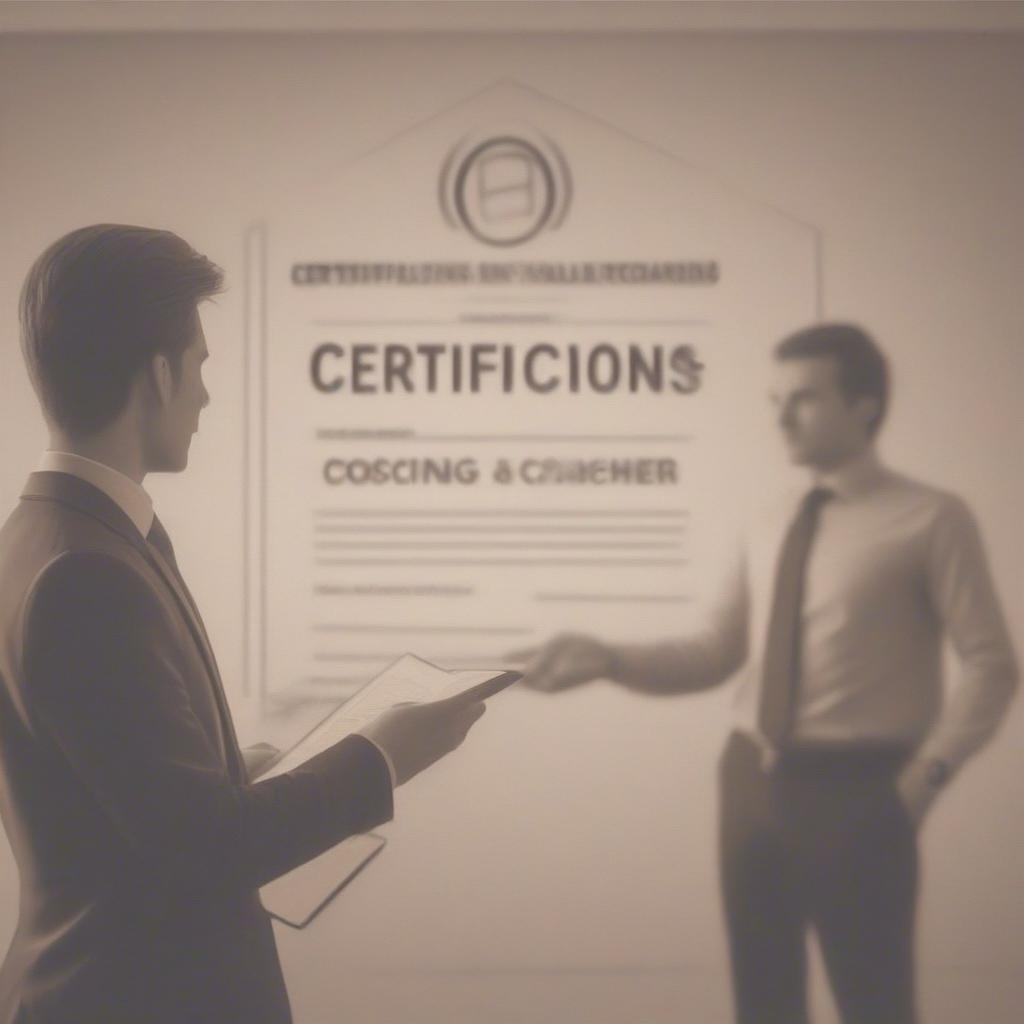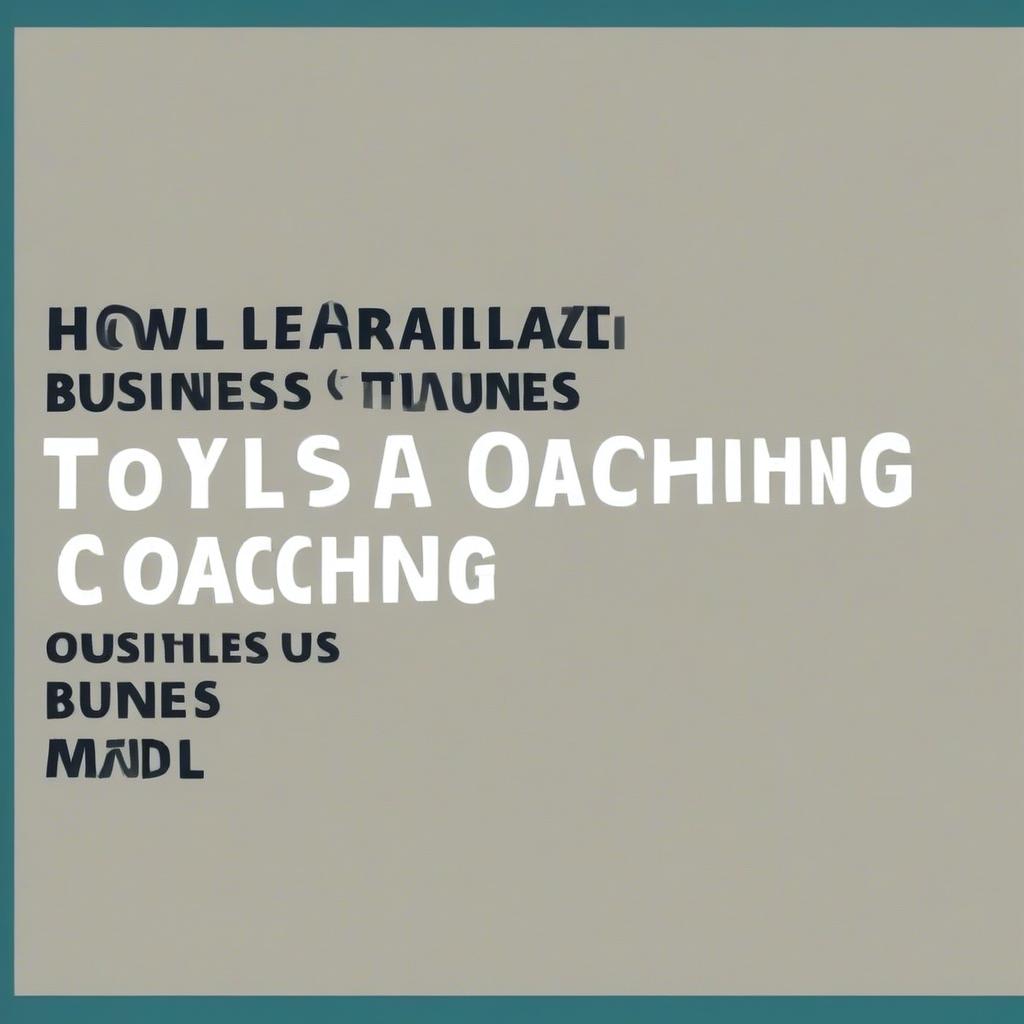
Why Coaching Certifications Matter: More Than Just a Piece of Paper
In the vibrant world of coaching, a burning question often surfaces: “Are coaching certifications really necessary?” The short answer? It depends. But the longer, more nuanced answer reveals that certifications can play a pivotal role in shaping your professional growth and propelling your coaching career to new heights. They’re not merely a formality; they represent a commitment to excellence, a dedication to your craft, and a signal of trustworthiness to potential clients. Let’s dive deeper into why these credentials matter.
The Credibility Factor: Building Trust With Clients
Imagine seeking help from a life coach. Would you feel more comfortable with someone who simply claims to be a coach, or someone who holds a respected certification from a recognized body? The answer is clear: certifications provide an instant sense of credibility. They act as a quality seal, assuring potential clients that you’ve undergone rigorous training, understand coaching ethics, and possess the necessary skills to guide them effectively. This trust is paramount in a field where personal transformation is the desired outcome.
Enhanced Skills and Techniques: Sharpening Your Coaching Toolbox
Certification programs don’t just hand out credentials; they invest in your development as a coach. They immerse you in proven methodologies, innovative techniques, and the latest research in human behavior and learning. You’ll learn how to ask powerful questions, facilitate meaningful conversations, and empower your clients to unlock their full potential. This kind of structured learning allows you to move beyond intuition and become a truly impactful coach.
Professional Growth: Elevating Your Career Trajectory
In today’s competitive coaching landscape, having the right certifications can be a significant differentiator. It allows you to command higher fees, attract more clients, and potentially specialize in a particular niche. Think of it as an investment in your future. Just as doctors need licenses and lawyers need to pass the bar, coaching certifications provide you with a similar badge of professionalism, ensuring that your clients can rest easy knowing they are in the hands of a qualified practitioner.
Staying Current: Keeping Up With the Evolving Landscape
The world of coaching is constantly evolving. New techniques, research, and philosophies emerge all the time. Reputable certification programs often require continuing education, ensuring that you stay up-to-date with the latest best practices and maintain a sharp edge in the field. This dedication to ongoing learning helps you remain relevant and provides your clients with the most effective strategies and support.
Navigating the Certification Landscape: Choosing the Right Path for You
So, you’re sold on the importance of certifications. But with a plethora of options available, how do you choose the right one for your coaching goals? It’s crucial to consider several factors to make an informed decision:
Step 1: Define Your Coaching Niche and Goals
Before anything else, reflect on your aspirations as a coach. What type of coaching do you envision yourself doing? Are you drawn to life coaching, executive coaching, health coaching, or something else? Understanding your niche and your specific career goals will help you narrow down your options. For example, if you aspire to be an executive coach, certifications recognized by large corporate entities might be of paramount importance.
Step 2: Research Certification Bodies and Programs
Once you know your niche, explore the various certification bodies and programs that align with your vision. Look for organizations with a strong reputation and accreditation, such as the International Coaching Federation (ICF), the Certified Professional Coach (CPC) , and the National Board for Health and Wellness Coaching (NBHWC). Review their curriculum, faculty, and student reviews to assess the quality of their training.
Step 3: Consider the Program’s Delivery Method and Cost
Certification programs vary in their delivery methods, from in-person workshops to online courses, to blended learning formats. Choose a method that fits your learning style and lifestyle. Additionally, consider the financial cost and the time commitment involved. Some programs can be quite expensive, while others may fit into your budget more comfortably. Look for financing options or payment plans if needed.
Step 4: Evaluate the Certification Requirements
Examine the requirements for obtaining the certification. Some programs require a certain number of training hours, supervised coaching sessions, and passing an exam. Others may ask for practical assessments. Understanding these requirements upfront will help you prepare accordingly.
Step 5: Consider Ongoing Support and Continuing Education
A good certification program will not leave you hanging after you’ve graduated. Look for programs that provide ongoing support, such as mentoring, networking opportunities, or access to coaching resources. Also, consider programs that offer continuing education opportunities to keep your skills sharp and stay current with the latest industry best practices.
The Power of Specialization: Leveraging Certifications to Stand Out
While foundational coaching certifications are crucial, specialization can further enhance your career prospects. This section will look at some popular specializations:
Executive Coaching Certifications
Executive coaches work with leaders in organizations, helping them develop their leadership skills and achieve their goals. A certification in executive coaching demonstrates your ability to work with high-level professionals and understand the challenges they face.
Life Coaching Certifications
Life coaching encompasses many areas, from relationships and personal growth to career transitions and finding purpose. A life coaching certification provides you with the tools and techniques to help clients navigate life’s complexities and achieve fulfillment.
Health and Wellness Coaching Certifications
Health and wellness coaches assist clients in achieving health-related goals, such as weight management, stress reduction, and improved sleep. A certification in this area demonstrates your understanding of health behavior change and motivational strategies.
Career Coaching Certifications
Career coaches focus on helping clients navigate the complexities of the job market. A certification in this specialization signals to clients that you have a deep understanding of career development and can help them make informed career choices.
Niche Coaching Certifications
There are also various niche certifications that focus on very specific areas such as relationship coaching, spiritual coaching, performance coaching or financial coaching. Exploring niche certifications can allow you to deeply refine and showcase your expertise in a specific area.
Career Tips for Maximizing the Impact of Your Certifications
Acquiring coaching certifications is just one step in your journey. Here are some career tips to make the most of your credentials:
Build Your Professional Network
Attend industry events, join coaching associations, and connect with other coaches. Networking can lead to referrals, partnerships, and mentorship opportunities.
Showcase Your Certifications
Display your certifications prominently on your website, social media profiles, and marketing materials. This will help potential clients understand your qualifications and build trust.
Continuously Develop Your Skills
Coaching is a lifelong learning process. Participate in workshops, attend conferences, and engage in peer coaching to enhance your skills and stay up-to-date with industry trends.
Offer Value Through Content Creation
Share your knowledge and expertise through blogging, social media, and webinars. This can help establish you as a thought leader and attract new clients.
Ask for Testimonials and Referrals
Client testimonials and referrals are a powerful marketing tool. Encourage satisfied clients to share their experiences.
Practice Ethical Coaching
Adhere to a strict code of ethics in all your coaching interactions. This builds trust and maintains your integrity as a professional.
Specialize to Gain a Competitive Advantage
Consider niche certifications in areas that interest you to gain specialized skills, which can further separate you from other coaches.
Seek Out Mentorship Opportunities
Consider finding an experienced coach to mentor you. This can be very beneficial in your own professional growth and helping you gain insights into coaching practices.
Practice Self-Care
Be sure to take time to look after your own health and wellbeing. By practicing self-care, you’ll be better placed to support your clients.
Track Your Progress
Be sure to track and record your growth. As you progress, you’ll get better at identifying opportunities for improvement and growth.
Overcoming Challenges on Your Certification Journey
The path to becoming a certified coach is not without its obstacles. Here’s how to navigate common challenges:
Time Constraints
Balancing training, coaching practice, and other commitments can be challenging. Consider time management strategies, setting realistic goals, and carving out time each week dedicated to your certification journey.
Financial Burdens
Certification programs can be expensive. Explore financing options, look for scholarships, or consider a payment plan.
Self-Doubt
It’s natural to experience self-doubt. Remind yourself of your passion for coaching and the positive impact you can make. Seek support from mentors or peers to stay motivated.
Information Overload
With so much information available, it’s easy to feel overwhelmed. Break down the process into manageable steps, focus on one goal at a time, and seek guidance from experienced coaches.
The Ongoing Journey of Professional Development
Earning certifications is not a destination; it’s a stepping stone in the ongoing journey of professional development. The coaching landscape is constantly evolving and it’s important to always stay curious, open to learning, and committed to providing the best support for your clients.
By consistently enhancing your skills and knowledge, you’ll not only become a more effective coach but you’ll also establish yourself as a leader in the field. This commitment to growth will be highly beneficial for the long term.
Learn Business: Your Partner in Coaching Success
At Learn Business, we understand the unique challenges that coaches face in establishing and growing their practice. That’s why we provide a comprehensive suite of resources designed to empower coaches at every stage of their journey.
Tailored Guidance for Coaching Businesses
We recognize that every coaching business is unique. Learn Business offers personalized guidance to help coaches develop a business plan, define their target audience, create compelling marketing strategies, and build a strong brand. We help you find the framework that will work best for you.
Ready-to-Use Templates and Tools
Starting and running a coaching business can be overwhelming. Our library of templates simplifies many of the time-consuming tasks, allowing you to focus on what you do best – coaching. From client onboarding forms to session note templates, you’ll find everything you need to streamline your workflow and be more efficient.
Support and Community
Learn Business isn’t just about providing information; it’s about fostering a community of coaches who support each other. You’ll find a place to ask questions, share your experiences, and learn from others who are also on their coaching journey.
Learn Business: Your Success is Our Mission
Whether you’re a seasoned coach looking to expand your practice or just starting out, Learn Business is here to support your professional growth and help you make a positive impact in the world.
Conclusion: Certifications: A Strategic Investment in Your Future
In the competitive world of coaching, certifications aren’t just a nice-to-have; they are a strategic investment in your future. They enhance your credibility, refine your skills, and provide a competitive edge. They’re a testament to your dedication and commitment, ultimately leading to increased client trust, improved practice opportunities and overall professional growth.
By carefully considering your options, selecting the right certifications, and continually developing your expertise, you can leverage these credentials to achieve your goals and make a meaningful impact in the lives of others. Remember, certifications are part of the larger journey of a successful coaching career, one where you’re committed to ongoing development, growth and the betterment of those you serve. The time, effort and resources that you invest will truly be beneficial for your future as a coach.



Leave a Reply